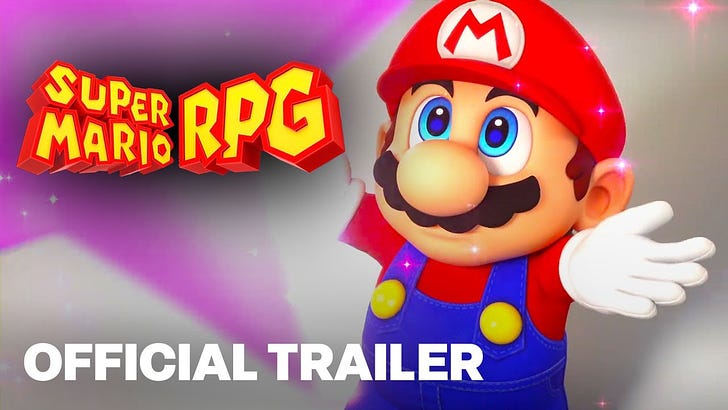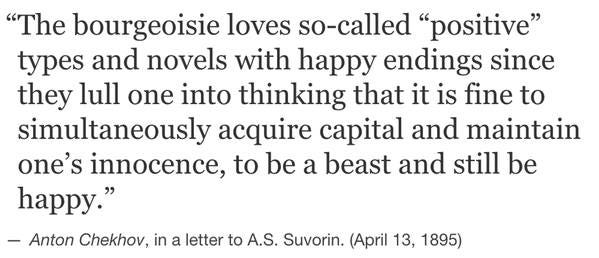For those interested in the writing process, I’m publishing a novella as I write it this month. Along with the novella, I’m also blogging about the process of writing a novella. I missed about ten days plus weekends for various reasons, but I should be finished by the end of the month anyway. You can find all that by clicking right here.
So I did discuss this game already but I wanted to write about something sort of related to it.
I’ve also written a bit about it before, though I hadn’t played it way back when.
guilty by association
I’m e rathke, the author of a number of books. Learn more about what you signed up for here. Go here to manage your email notifications.
Anyway, onto the rest.
a delightful sea
Sea of Stars is a delightful game. More than that, it’s an addictive game. It’s not overly long, which is another way of saying that it doesn’t overstay its welcome. Rather, it’s right in that old school sweet spot of 20-30 hours, much like the games from the 90s that it mimics.
And while some may criticize a mimic, I think there’s much to be gained from such efforts. For while it reminds you of much better games, it also manages to remind you of them in the right way. Which is to say that it’s not so indebted and locked in the 90s that it has annoying amounts of grinding or puzzles whose answer can only be found through a guide or by putting single lines of dialogue together from random NPCs that you may or may not ever talk to.
In truth, it owes a whole lot to Super Mario RPG, one of my favorite games.
Super Mario RPG
I’m e rathke, the author of a number of books. Learn more about what you signed up for here. Go here to manage your email notifications.
The combat especially is a refinement of these ideas while adding a healthy dose of Chrono Trigger’s excellent systems to the mix. The result is just the perfect combat system if you’re someone like me.
I asked last summer in the above Super Mario RPG essay what could have been had people iterated on the gameplay from that game. And here is the answer. It’s thirty years later, but it really is a treat. And it fills me with hope for indie game innovation.
Because the innovation is very light here, honestly. It’s more like the developers took these old tools and shoved them back into the light. And they did do that, judging by the commercial and critical success of Sea of Stars.
But there’s something else I want to talk about, which reaches a bit beyond this single game and into a whole host of other things.
Because the problems with Sea of Stars are narrative and these failures are part of a growing trend.
a grimdark sea
Long ago and far away, in those halcyon days of the early 2010s, I remember an article by some serious literary type talking serious literature type nonsense. In this case, it was some sort of attack on American Letters for not dealing with the actuality of the War on Terror.
As if no serious writer had already written novels about the War on Terror (they had), but the argument was, in essence, that the War on Terror should have transformed American Letters the way the Vietnam War did, for example.
I wish I could find the article now but I wouldn’t even know how to look for it, especially with google becoming increasingly useless.
Anyway, my immediate reaction then and still now is that the Dystopian craze of the late 2000s and 2010s was very obviously a cultural reaction to a nation in a state of perpetual war against an amorphous and indescribable enemy euphemistically referred to as terrorist.
For we were a nation that went to war with a war tactic. I don’t believe any nation before or since has ever done something like this. It would be like waging a War on Hostagetaking or Bombing or Sanctions.
Anyway, we got a thousand versions of the Hunger Games and we even got Grimdark Fantasy and SF that led to such wonders as A Game of Thrones and Battlestar Galactica (which, not for nothing, has an explicit storyline about the War on Terror where the good guys are the literal terrorists, so don’t tell me American arts weren’t challenging the status quo of a nation at war—we made our heroes into Al Queda!).
I don’t need to rehash those genres though. They had their time in the sun, but gradually, they’ve given way to a different kind of narrative.
We’ve seen the rise of cozy fantasy and cozy SF and cozy everything. We’ve seen the growth of solarpunk as an antidote to grimdark and dystopic fiction.
In the face of a horrifying present reality, artists and authors have decided that the only way to make the real life world we real lifely live in better is to imagine a world where it is better.
I find this admirable and even, possibly, necessary.
But, like the genres it’s reacting to, there are various problems.
a cozy sea
I do find our world a terror. I am horrified by the world that we live in, that I keep waking up to. And, no, this is not commentary on the quite recent presidential election in these United States. Though for many, it invariably will have to be.
I have been horrified by the world we inhabit for much of my life.
And so I do understand the effort to ameliorate its effects with hope.
One cannot survive without hope. Or so I’m told.
I’m an odd sort who finds comfort in such words as meaningless.
When I recently saw this shared on the worldwide web, I laughed enough to burst a vein because I suppose it gets at what I find somewhat distasteful about the cozy trend.
I understand that inventing a better future, if only in fiction, has a sort of edge of radicalism to it, but I find the implementation often quite lackluster. And I’ll use Sea of Stars as an example here.
While horrible things happen in Sea of Stars and the fate of the literal universe is at stake (lol), I find it all rather weightless and unserious. And part of this is through the generative narrative of the game. The more we meet NPCs and interact with them, the more we come to find that everyone is kind and nice and wants to get along, wants to work together, to cooperate and collaborate to make a better world.
One might ask what’s stopping them from doing so.
But it also makes the world feel quite flat. If everyone is on the same side, excepting the Big Bad Wolf, things feel slightly insane. Like, imagine how strange and unreal it would feel if you woke up tomorrow and every nation on the planet agreed to aggressively combat climate change.
It would feel nice! Absolutely.
But it would also feel like you were living in some lobotomized reality where no one has their own goals or even competing goals within a shared global struggle.
Because there’s a reason China is currently whooping ass at electric vehicles (though you may not know this because you think Elon Musk is the only agent at play) or green energy development. And it’s not out of pure goodness of heart, but because someone has to win the race to combat climate change. And, right now, it’s not going to be the US. There are millions of reasons why it won’t be the US, but there are far fewer why it probably will be China.
Most of us born in the final decades of the 20th Century have only known a Unipolar world. This is rapidly crumbling. But what will take its place? Well, one option is that rather than America standing tall above the rest of the world, it may be China.
And so we have a cozy game like Sea of Stars that is full of hope and optimism, but in such an unreal way, that I actually find it strangely horrifying.
What kind of mind could conceive of such a shallow world?
I lie awake at night over this.
While I think wallowing in darkness and grimy grimness is actively childish, I find this strangely worse.
The deceptive allure of hope.
The brutal flattening utopic ideals of babybrained artists.
Because we can make a better world.
But it will not be cozy getting there.
It will be a fight. And, yes, we must have hope, but hope is something earned. It’s something people die for. It’s what we live for. Sacrifice everything for the hope of a brighter future, the dream of a habitable world where our great granchildren will sing beneath the trees we planted.
And so I lay awake shuddering while looking into the face of my infant daughter, wondering if we have the will for hope, the resiliency left for it, or if hyperconsumerism and rising techfeudalism will give us enough comfort to bob along like a drunken boat to a burning world of terror.
Free books:









There was this Tumblr post a while back that made an interesting point about UNDERTALE - that the reason the game was so wildly successful is that all the characters in it were the fanfiction versions of themselves. (It was called the "Undertale Prime" theory, and this being Tumblr the response was to call the guy who came up with it a homophobe.) I think that's basically correct, and I think something similar is going on with plots like the ones you're describing here - a game with real conflict between characters would be worse as fodder for a cozy coffeeshop AU.
This put into words so beautifully something that has been bothering me in a lot of recent fiction. I've gotten so impatient with this cozy, conflict-free, gently dystopian utopia. It feels like everything is like this now, is sanding the edges off of the most basic of human conflicts. No one in a story can have genuinely competing interests from everyone else - even if it *seems* they do, in the end, it turns out their interests were all the same the whole time, way deep down.